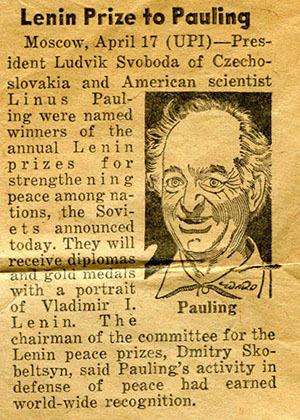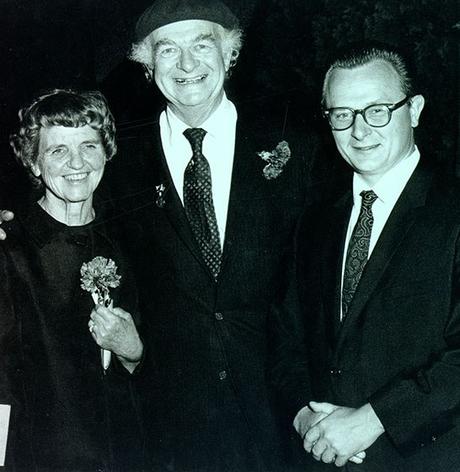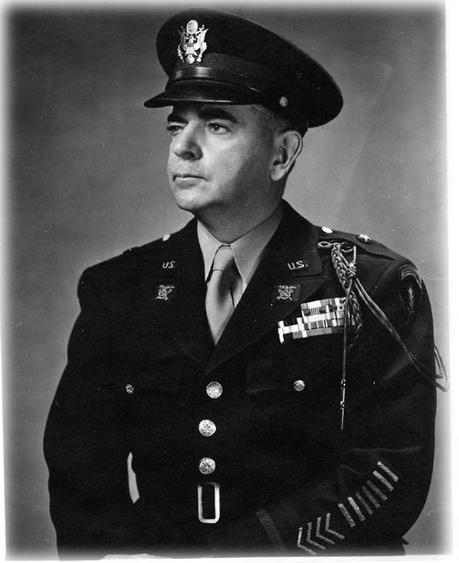Posted on by scarc
 Wire article published in the New York Daily News, April 17, 1970
Wire article published in the New York Daily News, April 17, 1970
[Part 2 of 2]
In June 1970, Linus Pauling accepted the International Lenin Peace Prize for Strengthening Peace Among Peoples, an award bestowed by the Soviet Union in the spirit of forging unity with the United States. An acknowledgement of Pauling's efforts to work towards world peace, the prize also served as a symbolic gesture for many people who were active in the global peace community.
Despite the high profile and prestige of the prize, only a small number of people were invited to attend the ceremony itself, which was held at the Soviet embassy in Washington, D.C. But that did not mean that the prize went unnoticed, and Pauling received a great many letters of congratulation once word of his accomplishment began to receive media attention.
One such correspondent was Romesh Chandra, Secretary General of the World Peace Council, who, on April 17, sent a telegram expressing "hearty congratulations" and specifically recognizing Pauling's "pioneering work and continued ceaseless action against United States aggression in Vietnam." A day later, Nikolai Tikhonov, the chairman of the Soviet Peace Commission, wrote a similar telegram in which he commended Pauling for his "indefatigable activities for peace," and his "courageous denouncements of militarism, especially [...] against [the] shameful war in Vietnam."

That same day, Pauling received another telegram from the president of the Peace Council of the German Democratic Republic, Dr. Guenter Drefahl, congratulating Pauling for his "outstanding struggle for disarmament and peace." And as the week moved forward the commendations continued to pour in. On April 20, a telegram from the Bulgarian Peace Committee offering their "warmest congratulations"; on April 21 a message from the Hungarian Peace Fighters sending their "appreciation" for Pauling's work.

The majority of these letters received a warm, if somewhat standard reply. One exception was that of Pauling's correspondence with a decorated U.S. Army Brigadier General, Hugh Hester. Perhaps because Hester was an outspoken critic of the U.S. involvement in the Vietnam War, or maybe due to the high Army rank that Hester had attained before he retiring some twenty years prior, Pauling's reply deviated from the standard acknowledgments that he afforded most others. Notably, Pauling took pains to express his feeling that "this is a terrible time for the world," and his hope "that Nixon has finally gone too far, and that the Congress will succeed in stopping him."
The rush of global praise brought about by Pauling's receipt of the prize did not negate the complications of a somewhat curious incident that preceded the award ceremony. In addition to an engraved medal bearing the image of Vladimir Lenin in profile, the prize came with a 25,000 ruble honorarium. Because rubles were valueless outside of the Soviet Union at the time, an interesting investigation into how the monetary award could be converted into usable currency ensued.
The situation was eventually sorted out when Linda Kamb, Pauling's daughter, visited the Soviet Embassy shortly before the award ceremony was to take place. Upon arriving, Linda spoke with Henry Kissinger, who was serving as the US National Security Advisor at the time, and who also happened to also be at the embassy that day. Linda met as well with the Soviet Ambassador to the United States.
In these conversations, Pauling's daughter asked the two men about her father's unusual problem of not being able to spend or use rubles, a circumstance that effectively rendered the cash prize as useless for non-Soviets. The two men subsequently conferred and decided that the prize money could be converted into US dollars at a rate of one ruble to $1.10, with the exchange happening within the embassy. This quote was apparently satisfactory, and a delve into Pauling's financial documents for the year 1970 indicates that he did in fact utilize the currency conversion option that his daughter had investigated and communicated to him.
Filed under: Linus Pauling: Awards | Tagged: Linda Pauling Kamb, Linus Pauling, Soviet Union |
